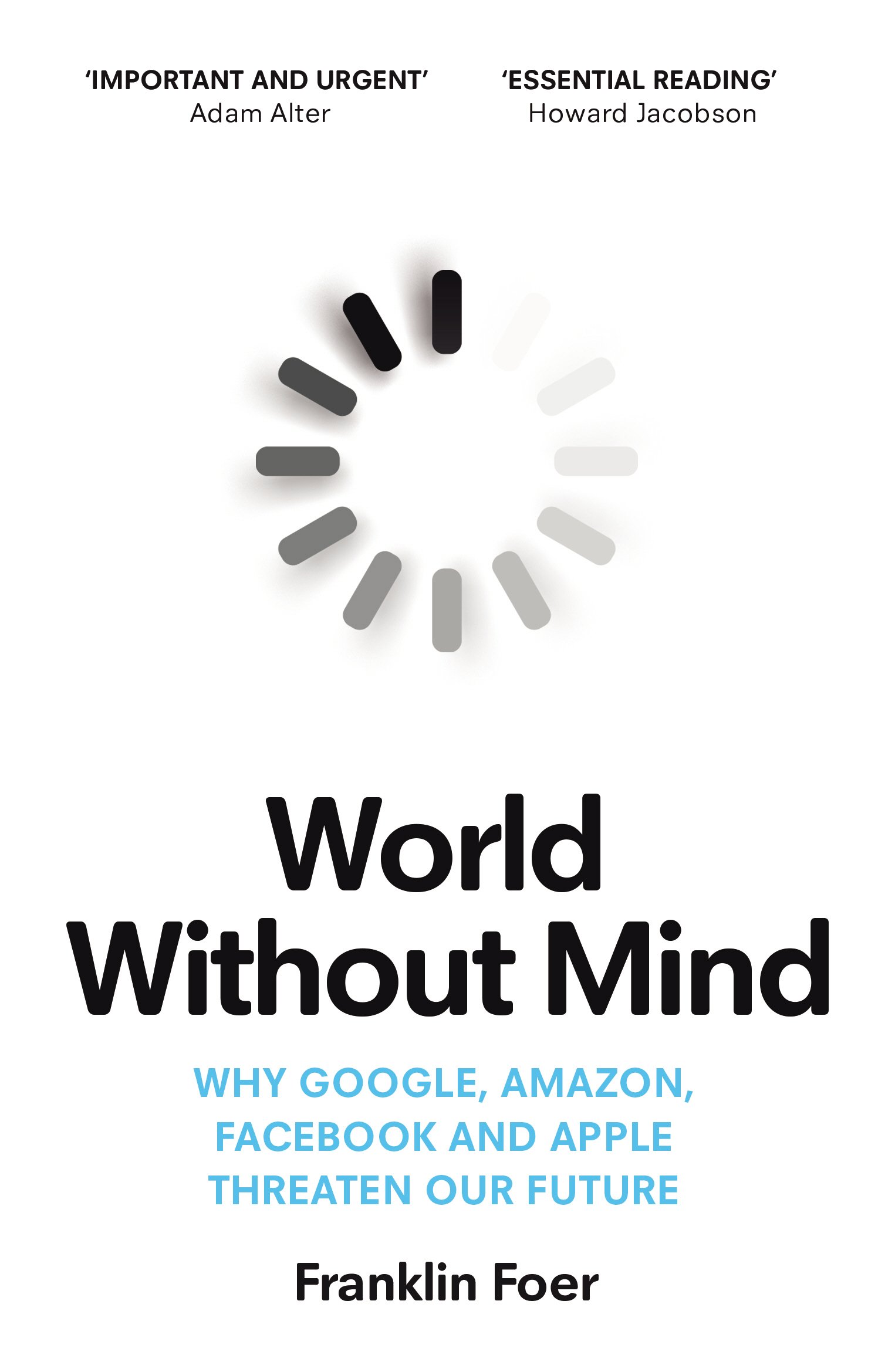


World Without Mind: Why Google, Amazon, Facebook and Apple threaten our future
R**N
Good.
A good read.
S**D
Great read.
Offers some interesting and insightful thoughts on the state of big tech, how we got here and some ideas about how we might mitigate some of the damage.
F**S
Must read
O livro descortina toda manipulacao e males para a democracia que grandes empresas de tecnologia fizeram nos ultimos 10 anos. Melhor livro do ano, sem duvida!
E**E
Required Reading for Anyone with a Google, Facebook, or Amazon Account
“World Without Mind” is an important, impassioned book that should be required reading for anyone who owns an iPhone or Android, or has a Facebook, Google, or Amazon account. Thirty years ago, college campuses were alive with protest and rebellion. It wasn’t anything like the sixties, but students still embraced the spirit of freedom and insisted on personal choice. The most political camped out in makeshift shantytowns demanding divestiture from South Africa and organized Take Back the Night marches. If a prophetess had appeared and told them that by the time their children were living in dorm rooms they’d be happily tracking their children’s every move via a smartphone app, buying clothing, books, and music recommended by the world’s largest and most secretive corporations, and voluntarily giving those corporations their most sensitive documents and precious memories for safekeeping—those students would not have believed her. Foer is not a modern-day Cassandra predicting a dystopian future. Rather, he is a veteran journalist whose book “World Without Mind,” describes the world we already live in, but whose power dynamics we have, as a species, almost unanimously failed to grasp. The consequences for continuing to Snapchat and Facebook IM our lives away in blissful ignorance are likely to be profoundly disturbing, but they are also easy to avert. In one of history’s most ironic twists, the students who were most equipped to rage against the machine—the best and the brightest and the most technologically savvy—spent the sixties, seventies and eighties preparing the ground for the growth of the most powerful corporations the world has ever seen. As Foer documents in his engaging and smart polemic, they were not motivated by an evil desire for control but by a craving for knowledge, community, and connection. Unfortunately for humanity, their motivations did not matter. The power of the tools they build did. The Trojan horse of corporate control is now inside our gates. It has replicated a billion times and shape-shifted into tools we use hundreds of times a day without thinking. In many cases, a message delivered by one of the four big tech companies is the first thing an ordinary person looks at when they wake up and the last thing they consult before they fall asleep. It might sound like Foer is against technology. But “World Without Mind” is not a call to revert to a less-connected, pre-Internet age. Foer does not advise throwing away your smartphone and deleting your Facebook account. What he advocates is informed consent fueled by an understanding of the agendas of the biggest technology firms and what they will do to achieve them. The bulk of his book is an engaging discussion of the ideology behind and the motivations of Google, Facebook, and Amazon, with fascinating digressions into Descartes' view of automata, Abraham Lincoln’s use of the telegraph key, and how the 1891 copyright law transformed writing from a hobby into a profession. “It’s hard not to marvel at these companies and their inventions, which often make life infinitely easier,” Foer says. “But we’ve spent too long marveling. The time has arrived to consider the consequences of these monopolies, to reassert our role in determining our human path.”
E**S
Book Without Sense
Imagine asking an important question on the internet about new technologies and internet and how they affect our lives and then getting a typical internet response from someone who at first describes his own life an then tries to throw irrelevant historical information in order to sound more educated. Of course he tries to connect this historical information with one or two sentences that somehow relate to your question. He does not want anybody to suspect that he does not really have an educated argument with a lot of self critique. And then, at the very end, he writes - "There are moments when we all seem to agree on this point. The election of Donald Trump came with the shock of collective recognition that our media culture has decayed..."I don't want to waste your time disproving authors naive arguments and his lack of education about the technology. If you want to read better books about this sort of stuff, look up Nicholas Carr. The Glass Cage and the Shallows were definitely better than this one even if I disagree with Carr he at least had the capacity to present the facts and his case right and in a single narrative.
D**I
A book for our times
We are going through great changes with the digital era in a deep way that we are not fully aware of. This book is good tool to understand the means and what's behind daily actions that we take for granted and natural, but that are not.
Trustpilot
3 weeks ago
3 days ago